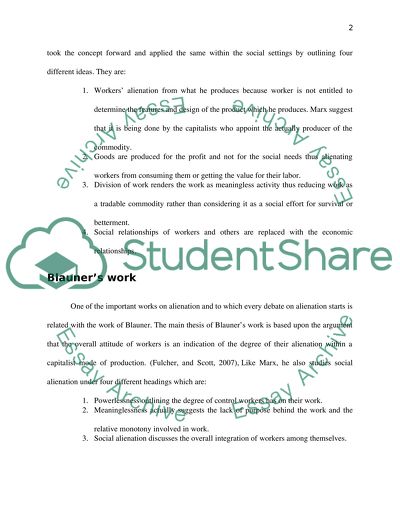Cite this document
(“Marx's Ideas of Alienation Coursework Example | Topics and Well Written Essays - 1500 words”, n.d.)
Marx's Ideas of Alienation Coursework Example | Topics and Well Written Essays - 1500 words. Retrieved from https://studentshare.org/sociology/1442736-to-what-extent-can-blauner-s-operationalisation-of
Marx's Ideas of Alienation Coursework Example | Topics and Well Written Essays - 1500 words. Retrieved from https://studentshare.org/sociology/1442736-to-what-extent-can-blauner-s-operationalisation-of
(Marx'S Ideas of Alienation Coursework Example | Topics and Well Written Essays - 1500 Words)
Marx'S Ideas of Alienation Coursework Example | Topics and Well Written Essays - 1500 Words. https://studentshare.org/sociology/1442736-to-what-extent-can-blauner-s-operationalisation-of.
Marx'S Ideas of Alienation Coursework Example | Topics and Well Written Essays - 1500 Words. https://studentshare.org/sociology/1442736-to-what-extent-can-blauner-s-operationalisation-of.
“Marx'S Ideas of Alienation Coursework Example | Topics and Well Written Essays - 1500 Words”, n.d. https://studentshare.org/sociology/1442736-to-what-extent-can-blauner-s-operationalisation-of.


